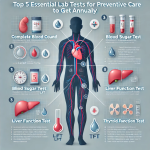
The CASPer (Computer-Based Assessment for Sampling Personal Characteristics) test is becoming an increasingly important component of the medical school admissions process. This situational judgment test is designed to assess non-cognitive skills and interpersonal characteristics that are essential for success in the medical profession. Here’s what you need to know about the CASPer test if you’re planning to apply to medical school.
Purpose of the CASPer Test
The CASPer test aims to evaluate applicants’ personal and professional qualities that are not measured by traditional academic metrics such as GPA and MCAT scores. These qualities include:
- Empathy
- Ethical decision-making
- Communication skills
- Professionalism
- Resilience
Medical schools use CASPer scores to gain a more holistic view of applicants, ensuring they select individuals who possess the necessary personal attributes to become competent and compassionate physicians.
See here:
Test Structure and Format
The CASPer test consists of 12 sections, each with a video or written scenario followed by three open-ended questions. Test-takers have five minutes to respond to each set of questions. The scenarios cover a wide range of topics, including ethical dilemmas, interpersonal conflicts, and professional challenges.
- Video-Based Scenarios: These feature actors portraying a situation, followed by questions that require the test-taker to analyze and respond to the scenario.
- Written Scenarios: These present a brief written description of a situation, followed by related questions.
Preparation Tips
Preparing for the CASPer test differs from studying for traditional academic exams. Here are some tips to help you succeed:
- Understand the Format: Familiarize yourself with the test format by reviewing sample questions and practicing with online resources.
- Reflect on Experiences: Think about your own experiences and how they have shaped your personal and professional values. Be prepared to draw on these experiences in your responses.
- Practice Ethical Reasoning: Read about common ethical issues in healthcare and practice articulating your thoughts on these matters.
- Develop Typing Skills: Since responses must be typed within a limited time, practicing typing can help ensure you can convey your thoughts quickly and clearly.
Test Day Essentials
On the day of the test, make sure you are prepared with the following:
- Quiet Environment: Choose a quiet, comfortable location where you won’t be disturbed during the test.
- Reliable Internet Connection: Ensure you have a stable internet connection to avoid technical issues.
- Identification: Have a valid form of identification ready for verification purposes.
- Functioning Computer: Use a computer that meets the technical requirements specified by the CASPer test administrators.
Scoring and Results
CASPer responses are scored by human raters, who evaluate the quality of the answers based on several criteria, including relevance, depth of insight, and ethical considerations. Each section is scored independently, and the scores are then compiled to create an overall result.
- Confidentiality: Test-takers do not receive individual question scores or detailed feedback. Instead, their overall score is sent directly to the medical schools they applied to.
- Use in Admissions: Medical schools use CASPer scores alongside other application components to make more informed decisions about which candidates to interview and ultimately admit.
Conclusion
The CASPer test is an important tool for assessing the personal and professional characteristics essential for success in medical school and the medical profession. By understanding the test’s purpose, structure, and preparation strategies, applicants can enhance their readiness and perform their best on test day. Preparing thoughtfully and reflecting on personal experiences can help demonstrate the qualities that medical schools are looking for in future physicians.







